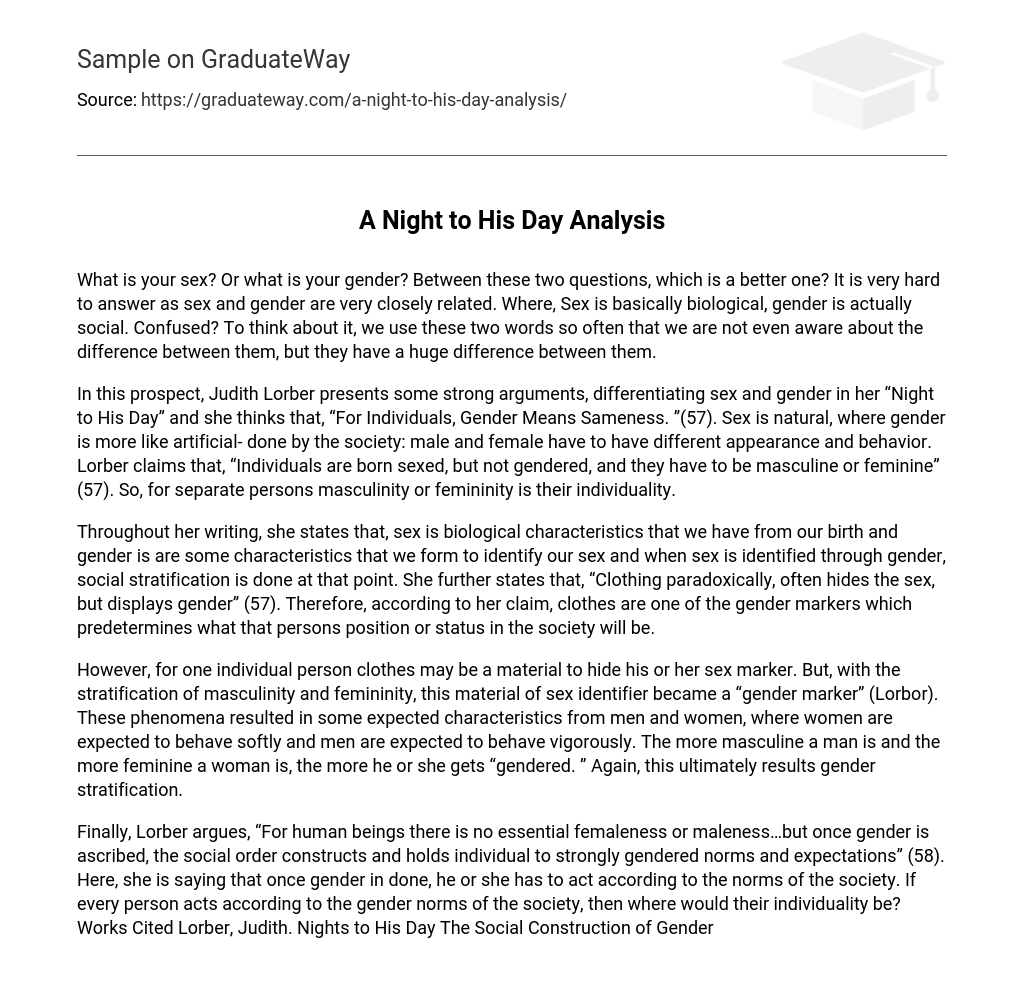What is your sex? Or what is your gender? Between these two questions, which is a better one? It is very hard to answer as sex and gender are very closely related. Where, Sex is basically biological, gender is actually social. Confused? To think about it, we use these two words so often that we are not even aware about the difference between them, but they have a huge difference between them.
In this prospect, Judith Lorber presents some strong arguments, differentiating sex and gender in her “Night to His Day” and she thinks that, “For Individuals, Gender Means Sameness. ”(57). Sex is natural, where gender is more like artificial- done by the society: male and female have to have different appearance and behavior. Lorber claims that, “Individuals are born sexed, but not gendered, and they have to be masculine or feminine” (57). So, for separate persons masculinity or femininity is their individuality.
Throughout her writing, she states that, sex is biological characteristics that we have from our birth and gender is are some characteristics that we form to identify our sex and when sex is identified through gender, social stratification is done at that point. She further states that, “Clothing paradoxically, often hides the sex, but displays gender” (57). Therefore, according to her claim, clothes are one of the gender markers which predetermines what that persons position or status in the society will be.
However, for one individual person clothes may be a material to hide his or her sex marker. But, with the stratification of masculinity and femininity, this material of sex identifier became a “gender marker” (Lorbor). These phenomena resulted in some expected characteristics from men and women, where women are expected to behave softly and men are expected to behave vigorously. The more masculine a man is and the more feminine a woman is, the more he or she gets “gendered. ” Again, this ultimately results gender stratification.
Finally, Lorber argues, “For human beings there is no essential femaleness or maleness…but once gender is ascribed, the social order constructs and holds individual to strongly gendered norms and expectations” (58). Here, she is saying that once gender in done, he or she has to act according to the norms of the society. If every person acts according to the gender norms of the society, then where would their individuality be? Works Cited Lorber, Judith. Nights to His Day The Social Construction of Gender





